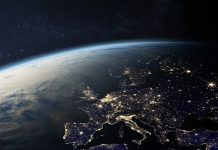Building capacity in aquaculture research and development
Established in 1998, the UNU-FTP addresses major challenges to the sustainable development of fisheries and aquaculture in developing countries through institutional and individual capacity building. The UNUFTP runs a six-month post-graduate training in Iceland for practising professionals and delivers short courses in developing countries in partnership with local institutions. The training offered by the UNU-FTP is designed to meet the needs of individual participants and their institutions and is well suited to fulfil capacity building components of development projects.
Over 300 professionals from 50 countries have completed the six month programme in Iceland. One area of focus for UNU-FTP is sustainable aquaculture, which is taught at Holar College University in northern Iceland.
26 fellows have completed this line of specialisation, roughly 20 more have done research related to aquaculture through the lens of policy and planning, management of fisheries companies and quality management of fish handling and processing. Individual research projects have grappled with a range of issues facing aquaculture development across the globe, including assessment of profitability, evaluation and formulation of policy, experiments with new species, and formulating new sources of protein for fish feed. Taken together, these research projects strengthen our understanding of both the path that led to modern aquaculture and the challenges it will face in the future. Since the mid-1980s global catches of fish have stagnated at around 90 million tons annually. At the same time demand for seafood has increased rapidly due to increased human population and the growing global middle class’s taste for healthy fish. Aquaculture is the fastest-growing food sector in the world, producing 50% of all fish for human consumption in 2012, according to the FAO. Most countries have aquaculture growth high on their development agenda.
Feed, seed and scale of operation: pressing issues in global aquaculture
Over 90% of all fish produced in aquaculture comes from developing countries, and each faces distinct challenges. Most of the production in China are carp species, which are low in the food chain and of relatively low value. Rapid economic development in China and many other Asian countries have increased demand for high valued fish, which continues to lead to the culture of new species, which is another challenge facing aquaculture.
Sub Saharan Africa produces less than 1% of total global aquaculture despite decades of investment by development agencies in the sector. Costs can make or break aquaculture farms. Feed constitutes more than 50% of the variable cost in fish farming. Research in alternative protein sources for fish meal and improvements in fish feed formulation are important areas of research. Marketing and geographic placement of farms are also key components to success in aquaculture, as the cost and security of deliveries depend on logistics and the closeness of markets.
Economies of scale are particularly important in the sustainability of aquaculture enterprises, and more so as operations become more intensive and require greater investment. In Asia, the formation of clusters has to some extent had a scaling effect but this is not a common model in Africa Hólar University College: Hólar is a small community in the northern part of Iceland with a strong cultural heritage relating to higher education. The objective of the Department of Aquaculture is an international centre for research, instruction, and continuing education in aquatic biology, aquaculture, and fish biology.
For more information visit http://www.holar.is/en/english.
Tumi Tómasson Ph.D
Programme Director
United Nations University Fisheries Training Programme
Marine Research Institute- Iceland
Tel: +354 575 2000 / Direct 575 2083
Mobile: +354 895 9807
unu@unuftp.is










